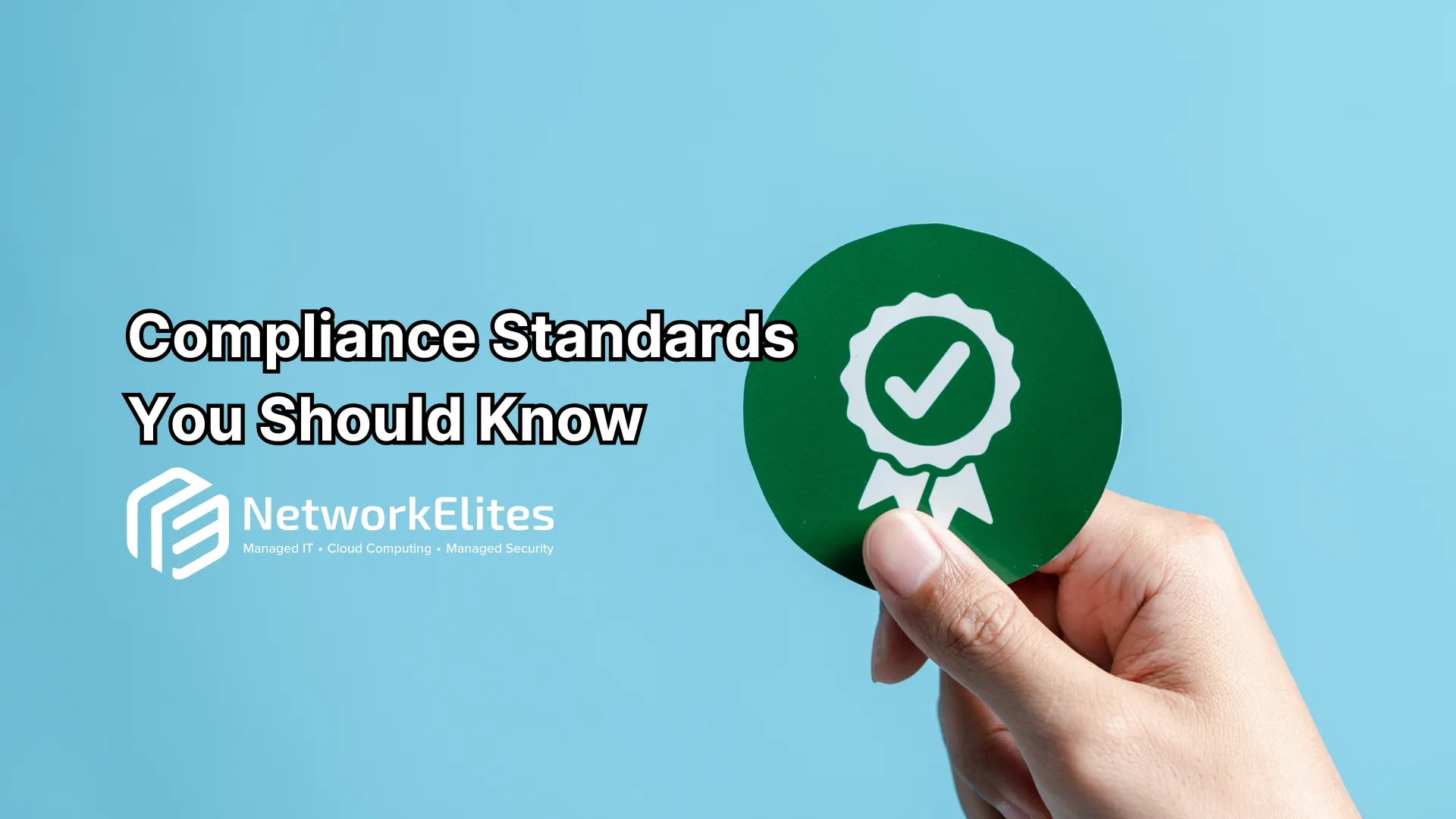
Compliance Standards You Should Know

Key Compliance Standards You Need to Know
At Network Elites, we understand how critical it is to comply with industry standards to protect sensitive data, gain customer trust, and meet legal requirements. Navigating these compliance frameworks can be complicated, but our partnership with Vanta, a leader in compliance automation, makes achieving and maintaining compliance faster and more efficient for our clients.
Below, we’ve outlined some of the most important compliance frameworks shaping today’s business landscape, with expanded insights into why they matter and how they can impact your organization:
SOC 2
The Service Organization Control 2 (SOC 2) standard is a must-have for technology and cloud-computing companies that handle sensitive customer data. It focuses on five core principles: security, availability, processing integrity, confidentiality, and privacy.
Achieving SOC 2 compliance demonstrates that your organization has implemented rigorous internal controls, processes, and safeguards to protect data and maintain operational efficiency. SOC 2 also helps establish credibility with customers who need assurance that their data is in safe hands. By meeting SOC 2 requirements, businesses can unlock new growth opportunities and partnerships, particularly with clients who prioritize data protection.
ISO 27001
ISO 27001 is the internationally recognized gold standard for information security management systems (ISMS). It sets out a framework for establishing, implementing, maintaining, and continuously improving information security. By achieving ISO 27001 certification, your organization demonstrates a proactive approach to identifying risks, managing vulnerabilities, and preventing data breaches.
ISO 27001 is especially beneficial for companies operating in global markets, as it signals compliance with stringent security requirements recognized worldwide. Certification can also provide a competitive edge by reassuring stakeholders that your organization prioritizes security at every level.
HIPAA
For healthcare organizations, compliance with the Health Insurance Portability and Accountability Act (HIPAA) is non-negotiable. HIPAA establishes strict requirements for the privacy and security of protected health information (PHI). This includes implementing administrative, physical, and technical safeguards to protect patient data from unauthorized access.
Non-compliance with HIPAA can result in severe penalties, reputational damage, and loss of patient trust. Beyond meeting legal requirements, HIPAA compliance ensures that healthcare organizations maintain ethical standards and deliver quality care without compromising sensitive information.
GDPR
The General Data Protection Regulation (GDPR) is Europe’s landmark data privacy law, setting the global standard for transparency and accountability in data protection. GDPR applies to any organization that processes personal data of EU citizens, regardless of where the organization is based.
Compliance with GDPR involves ensuring data is collected and processed with consent, providing individuals with rights over their personal data, and embedding privacy by design into your systems. Non-compliance can result in fines of up to €20 million or 4% of annual global revenue, whichever is higher.
Adhering to GDPR not only avoids penalties but also builds trust with customers by demonstrating a commitment to safeguarding their privacy.
CCPA and U.S. Data Privacy Laws
The California Consumer Privacy Act (CCPA) is a key piece of legislation in the United States aimed at giving consumers greater control over their personal data. It empowers individuals with rights such as knowing what data is collected, requesting data deletion, and opting out of data sales. Similar laws, such as the Virginia Consumer Data Protection Act (VCDPA), are emerging across the U.S., creating a growing landscape of privacy regulations.
For businesses, compliance with CCPA and other U.S.-based data privacy laws means adopting transparent data practices, securing customer information, and providing mechanisms for consumer control. Non-compliance not only risks penalties but also damages your brand reputation in a market where privacy expectations are increasing.
Why Compliance Matters
Compliance isn’t just about avoiding fines or penalties—it’s about protecting your business, your customers, and your reputation. Meeting these standards demonstrates a commitment to operational excellence, security, and ethical responsibility. It builds trust with customers, partners, and stakeholders while opening doors to new business opportunities in increasingly security-conscious markets.
Our partnership with Vanta empowers our clients to stay compliant with ease and confidence. Vanta’s automated compliance platform streamlines the process of achieving and maintaining key certifications like SOC 2, ISO 27001, and more. By leveraging Vanta’s technology, we help clients reduce the complexity of compliance management, ensuring they remain audit-ready at all times. This collaboration allows businesses to focus on growth while we take care of safeguarding their regulatory requirements, giving them a clear competitive edge in today’s security-driven market.
Let us help you stay ahead of compliance requirements. Contact us today for a free consultation and learn how we can simplify compliance for your business!

Custom IT solutions that save time & money.
Protect against loss and crisis.
.png)




